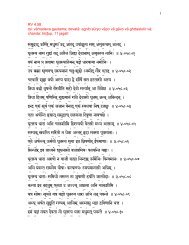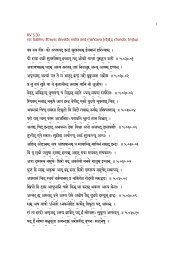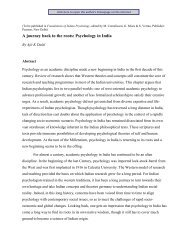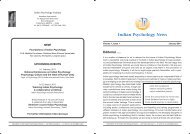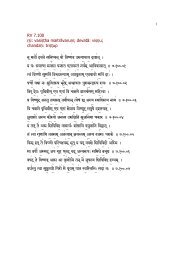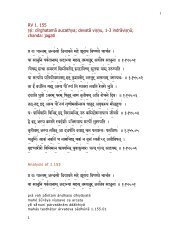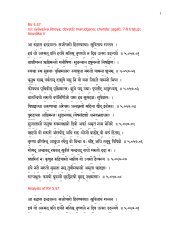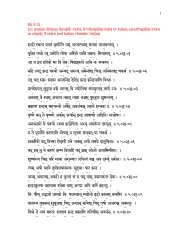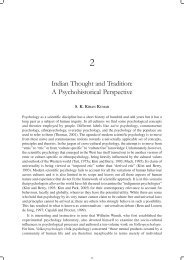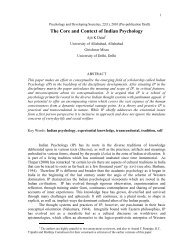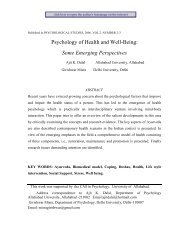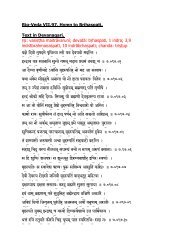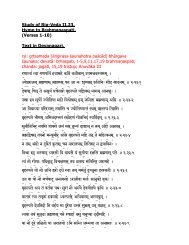Anasakti and health: A study of non-attachment - Indian Psychology ...
Anasakti and health: A study of non-attachment - Indian Psychology ...
Anasakti and health: A study of non-attachment - Indian Psychology ...
Create successful ePaper yourself
Turn your PDF publications into a flip-book with our unique Google optimized e-Paper software.
’These conjectures have empirical support. Zaffy <strong>and</strong> Bruning(1966) have suggested that anxiety causes individuals to attend t<strong>of</strong>ewer cues in solving a problem. Easterbrook (1959) has statedthat the number <strong>of</strong> cues utilised in any situation tends to becomesmaller with increase in emotion. This emotional arousal getsexaggerated when the individual starts ruminating about thoseideas which may be totally irrelevant to the task, such as, hispsychological state. As a consequence, the individual starts attendingto the autonomic activity which is thus generated only to showpoorer task performance (M<strong>and</strong>ler, 1982).Brown (1980) has argued that while reacting to stressors, certainkinds <strong>of</strong> intellectual processes form asequence93to exacerbatedistress. They refer to the manner in which an individual interpretsthe disparity between his expectations <strong>and</strong> perception <strong>of</strong> an event.This interpretation might lead to various kinds <strong>of</strong> perceptualdistortions, unconscious defenses <strong>and</strong> attentional problems. Thoits(1984) has pointed out that emotions have a major role in thestress process <strong>and</strong> that the techniques adopted for exnotion managementcan alter the perception <strong>of</strong> stressors as well as coping.strategies.Since these intrusive cognitions <strong>and</strong> emotional excitations arecrucial in the reaction to stressors, it can be argued that greaterconcentration <strong>and</strong> absorption in the task at h<strong>and</strong> will eliminateabout the nature <strong>of</strong>task-irrelevant thoughts such as anticipationsoutcomes. This will perhaps result in task excellence. On the otherh<strong>and</strong>, emotional stability acquired through mentally dissociatingoneself from the outcome will protect the individual from emotionallysuccumbing to the experience <strong>of</strong> failure. Therefore it seemsthat anasakti will help the individual in such a way that he does notperceive life events as stressors. It may also serve as a significant&dquo;resistance resource&dquo; (Antonovsky, 1980) <strong>and</strong> increase his physical<strong>and</strong> psychological resistance to distress.The following hypotheses were formulated for this <strong>study</strong>.In the case <strong>of</strong> subjects high on anasakti comparedon it:1. The mean <strong>of</strong> distress ratings given.to those lowin stressful life eventswould be smaller.2. The mean <strong>of</strong> strain scores would be smaller.Downloaded from pds.sagepub.com by Ajit Dalal on April 4, 2011



